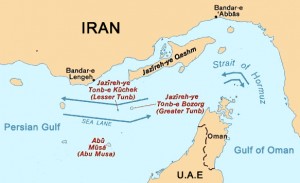 Oil declined for the first time in seven days as a surge in the European Central Bank’s balance sheet to a record highlighted the growing risks of the region’s debt crisis.
Oil declined for the first time in seven days as a surge in the European Central Bank’s balance sheet to a record highlighted the growing risks of the region’s debt crisis.
Oil declined for the first time in seven days as a surge in the European Central Bank’s balance sheet to a record highlighted the growing risks of the region’s debt crisis.
Futures dropped as much as 1.4 percent after the ECB lent financial institutions more money last week in an attempt to keep credit flowing. The European single currency tumbled to the lowest level since January against the dollar, curbing investor demand for commodities. Oil also decreased on reduced concern that Iran will block the Strait of Hormuz.
“The biggest news right now is that the euro is coming in pretty strongly,” said Tom Bentz, a director with BNP Paribas Prime Brokerage Inc. in New York. “It was time for a correction after rising for six days.”
Crude oil for February delivery decreased $1.06, or 1 percent, to $100.28 a barrel at 10:47 a.m. on the New York Mercantile Exchange. Earlier, prices touched $99.91 a barrel. Futures have climbed 9.7 percent this year, extending last year’s advance of 15 percent.
Brent oil for February settlement fell 78 cents, or 0.7 percent, to $108.49 a barrel on the London-based ICE Futures Europe exchange. The European contract’s premium to crude in New York was $8.21 a barrel, up from $7.93 at yesterday’s close, the smallest differential based on settlement prices since Jan. 20.
New York oil prices surged 1.7 percent to $101.34 yesterday, the highest settlement since Nov. 16, during a period of slow trading. Volume was 167,547 on Dec. 23, the lowest level since Dec. 26, 2008, and down 73 percent from the average of the past three months. Open interest was 1.31 million contracts.
‘Exaggerated’ Move
“The significant rally yesterday was probably exaggerated because of low volume,” said Gene McGillian, an analyst and broker at Tradition Energy in Stamford, Connecticut.
Lending to euro-area banks jumped 214 billion euros ($280 billion) to 879 billion euros in the week ended Dec. 23, the Frankfurt-based ECB said in a statement today. Its balance sheet increased 239 billion euros to 2.73 trillion euros, it said.
The 17-nation currency fell against the dollar as concern increased that the region’s sovereign-debt crisis will reduce economic growth in the region. The euro decreased as much as 1 percent to $1.2943.
About 15.5 million barrels of oil a day, or a sixth of global consumption, passes through the Strait of Hormuz between Iran and Oman at the mouth of the Persian Gulf, according to the U.S. Energy Department. Iran’s navy started a 10-day exercise east of the passage that involved the use of submarines, ground- to-sea missile systems and torpedoes, Press TV said Dec. 24.
Bloomberg

Leave a Reply
You must be logged in to post a comment.